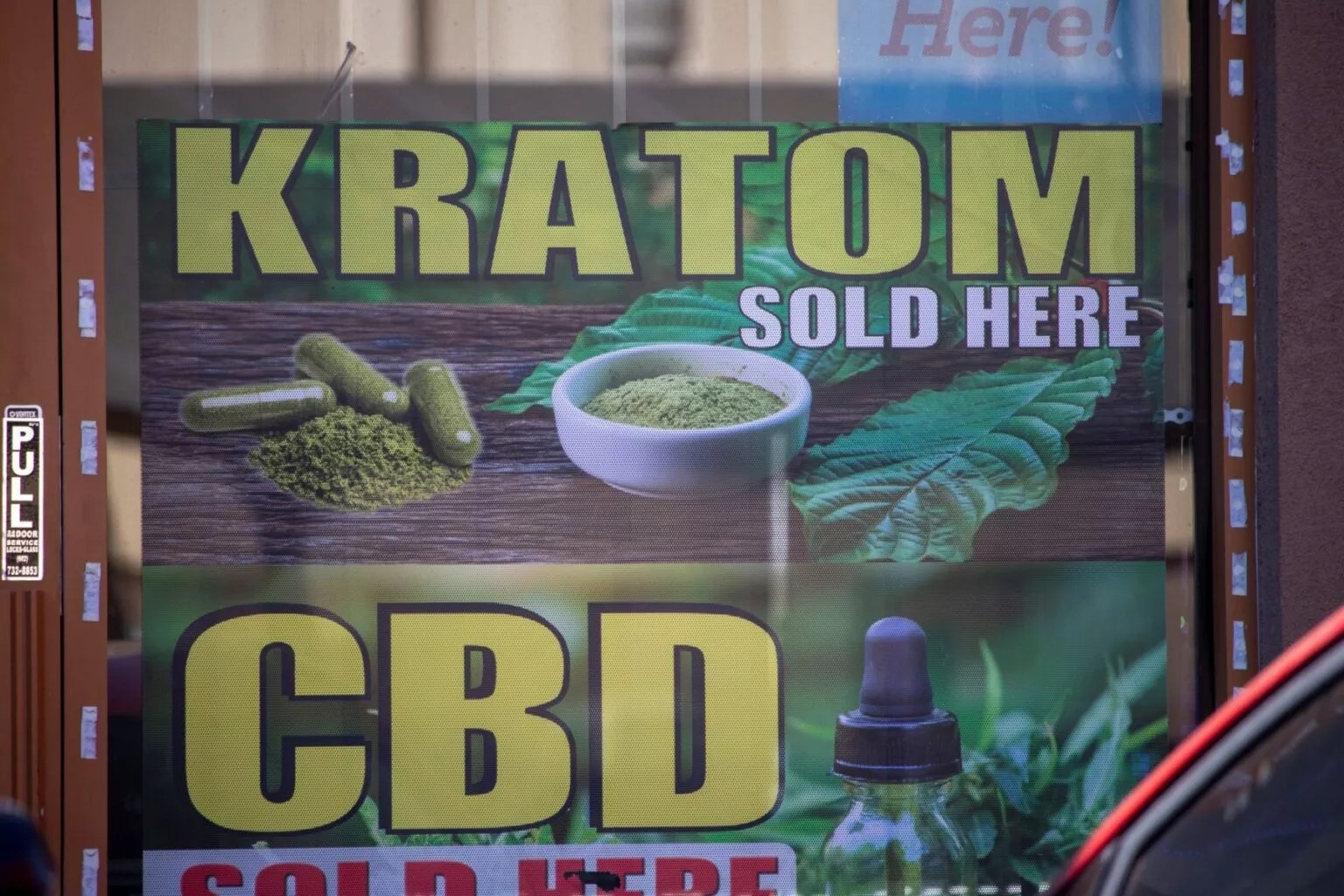
Jerod MacDonald-Evoy/Arizona Mirror

Audio By Carbonatix
The federal government is taking steps to ban the sale of 7-OH, a synthetic variant of kratom with opioid-like effects that is widely available in smoke shops and gas stations in Arizona and elsewhere.
In a press conference on Tuesday, the Food and Drug Administration announced its recommendation that 7-OH, or 7-hydroxymitragynine, be scheduled and restricted under the Controlled Substances Act. In its current form, the product – which came onto the market in late 2023 but didn’t gain much traction with consumers until mid-2024 – is entirely unregulated.
FDA and Department of Health and Human Services officials signaled they’d like the product to be classified as a Schedule I illicit drug, which means it has no accepted medical use and a high potential for abuse. That classification would put 7-OH in the same category as heroin, LSD and marijuana.
HHS spokesperson Jim O’Neill said the products are “often sold online or at convenience stores with no quality control, no dosage control and no warnings,” which is “a recipe for a public safety disaster.”
“We have a history of being asleep at the wheel. Let’s not get caught flat-footed again,” FDA Commissioner Dr. Martin Makary added at the press conference. “The Trump administration is deeply committed to preventing another wave of the opioid epidemic.”
The recommendation came after the FDA sent warning letters to seven 7-OH retailers on July 15 for illegally distributing products containing the substance, including tablets, gummies, drink mixes and shots. The agency also released a 24-page report Tuesday outlining the drug’s harms.
Now the Drug Enforcement Agency will begin its “legal rulemaking process” of reviewing 7-OH “expeditiously, thoroughly and in accordance with the law,” said DEA assistant administrator Tom Prevoznik. That includes analyzing abuse potential, medical use and public health risks.
Before the DEA makes a final decision on scheduling 7-OH, the fate of the drug will be open to public comment. Kratom researchers and advocates already have a lot of differing opinions.
C. Michael White, a member of the Kratom Consumer Advisory Council and professor of pharmacy at the University of Connecticut, “strongly” supports the FDA’s decision, he told Phoenix New Times in a statement. He thinks 7-OH “should be banned.” He argued 7-OH is a strong opioid “more potent than morphine” and said studies with animals found it produces rapid tolerance and addiction.
Christopher McCurdy, a pharmacist and researcher of drug abuse at the University of Florida, also “applau(ed) the move.” However, McCurdy believes that 7-OH should be scheduled as a lower-class Schedule II drug, similar to Vicodin, cocaine, meth, Adderall and fentanyl. This way, 7-OH could be further studied and prescribed by a pharmacist if researchers establish “traditional benefits to the drug.”
Dr. Michele Ross, an addiction specialist and scientific advisor for the 7-HOPE alliance, which advocates for safe 7-OH use, disagreed. She called the FDA’s decision unwarranted and said the agency cherry-picked some of its information about 7-OH. Ross said she was skeptical of 7-OH when it first hit the market, but found it helpful to combat chronic pain after doing further research and taking it herself.
“This isn’t the harm, this is the harm reduction,” she said. “I would much rather see someone take 7-OH than a fentanyl tablet.”
Ross admitted that 7-OH does have “some addiction profile” and is “more addictive” than coffee, but said it isn’t the “fire-alarm fire” that the FDA is making it out to be. She doesn’t think it should be scheduled at all and believes it could help chronic pain patients and users looking to quit other opioids, such as fentanyl. If the DEA decides to ban the drug, she said, it could hurt patients who have finally found relief from their pain.
As has been the case with cannabis, once a drug is scheduled, it’s nearly impossible to reverse. Rather than an outright ban, Ross suggested that 7-OH should be regulated through federal and state legislation to provide more guardrails for consumers.
“Our hope is that it doesn’t go off the market,” Ross said.
The future of 7-OH in convenience stores and smoke shops remains undetermined. The scheduling process can take months or several years to complete, and it could fall through completely. The DEA previously tried to schedule 7-OH’s derivative, kratom, in 2016, but that effort failed. Kratom remains unregulated and widely available.